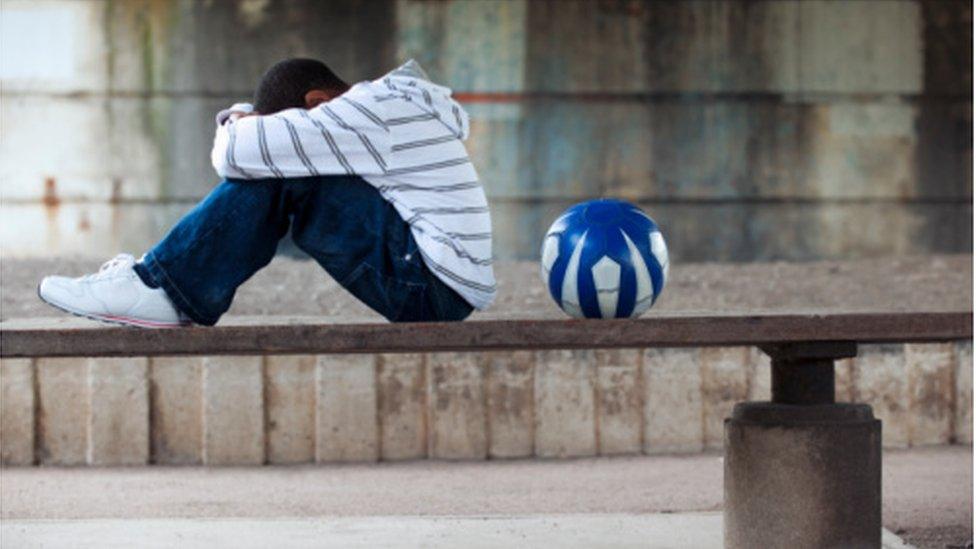'Vulnerable children have to reach crisis to get help'
- Published

Children's Centres are among the services to be cut
Children facing abuse and neglect in England increasingly get help from local councils only when their problems reach a crisis, say leading charities.
Services which intervene early to help families in difficulties are bearing the brunt of cuts, says their report.
Relying on crisis intervention incurs a "devastating cost" both socially and financially, they add.
The government says that providing help as early as possible is the best way to keep children safe.
But the analysis by the Children's Society, Action for Children and the National Children's Bureau finds that councils are slashing preventative services "under the pressure of £2.4bn of central government funding cuts".
Specifically, it says, central government funding for early intervention has fallen by £1.7bn since 2010.
The report, Turning the Tide, finds:
40% cuts to services designed to spot early signs of neglect and abuse in the five years to 2016
cuts in the poorest areas are six times worse than in the richest
Children's Centres, youth centres, teenage pregnancy advice and family support have all faced cuts
Over the same period, the number of child protection investigations has more than doubled, with spending on crisis support up 7%, at £6.1bn, says the report.
Matthew Reed, chief executive of the Children's Society, called the cuts "nothing short of devastating".
"Services that could intervene early to stop problems escalating have been the hardest hit.
"All too often central government shrugs off responsibility for council spending decisions but the figures are stark and undeniable.
"Councils are being denied the funding they need to provide safe, effective children's services and spending on vital support is collapsing as a result.
"We are at a tipping point with more cuts yet to come. The government must step up and give councils the funds they need to protect our children."
'Fire-fighting'
Sir Tony Hawkhead, chief executive of Action for Children, said council children's services were reduced to "a crisis fire-fighting model".
While Anna Feuchtwang, chief executive of the National Children's Bureau, asked: "Do we really want a system that can only help children and young people at immediate risk of harm, but can't step in to help families before problems deteriorate?"
The report urges central government to address the funding gap as a matter or urgency, working with local authorities to ensure additional funds go to early intervention services.
The Local Government Association which represents councils in England warned of a further £2bn in central government funding cuts over the next three years.
Richard Watts, chairman of the LGA's Children and Young People Board, said councils were "working hard" to minimise the impact of cuts, with savings including reductions to "other valuable services such as parks, libraries and street lighting".
"Last year saw the biggest annual increase in children in care since 2010 and councils simply cannot continue to provide the level of support that these children and young people need without urgent action to provide the funding necessary to do so," said Mr Watts.
He urged the government to use the forthcoming budget "to commit to fully funding children's services".
Anne Longfield, children's commissioner for England, said the government should earmark funding to enable councils "to help children earlier when problems first start, rather than waiting until children are in crisis".
A government spokeswoman said more than £200bn had been made available to councils for local services, including children's services, up to 2019-20.
"Councils have a duty to provide appropriate care for the children in their area, including responding to referrals. We are supporting them to deliver efficient services by investing £200m in the Children's Social Care Innovation Programme - this includes projects providing targeted support for children in need."
- Published14 August 2017

- Published21 March 2017
